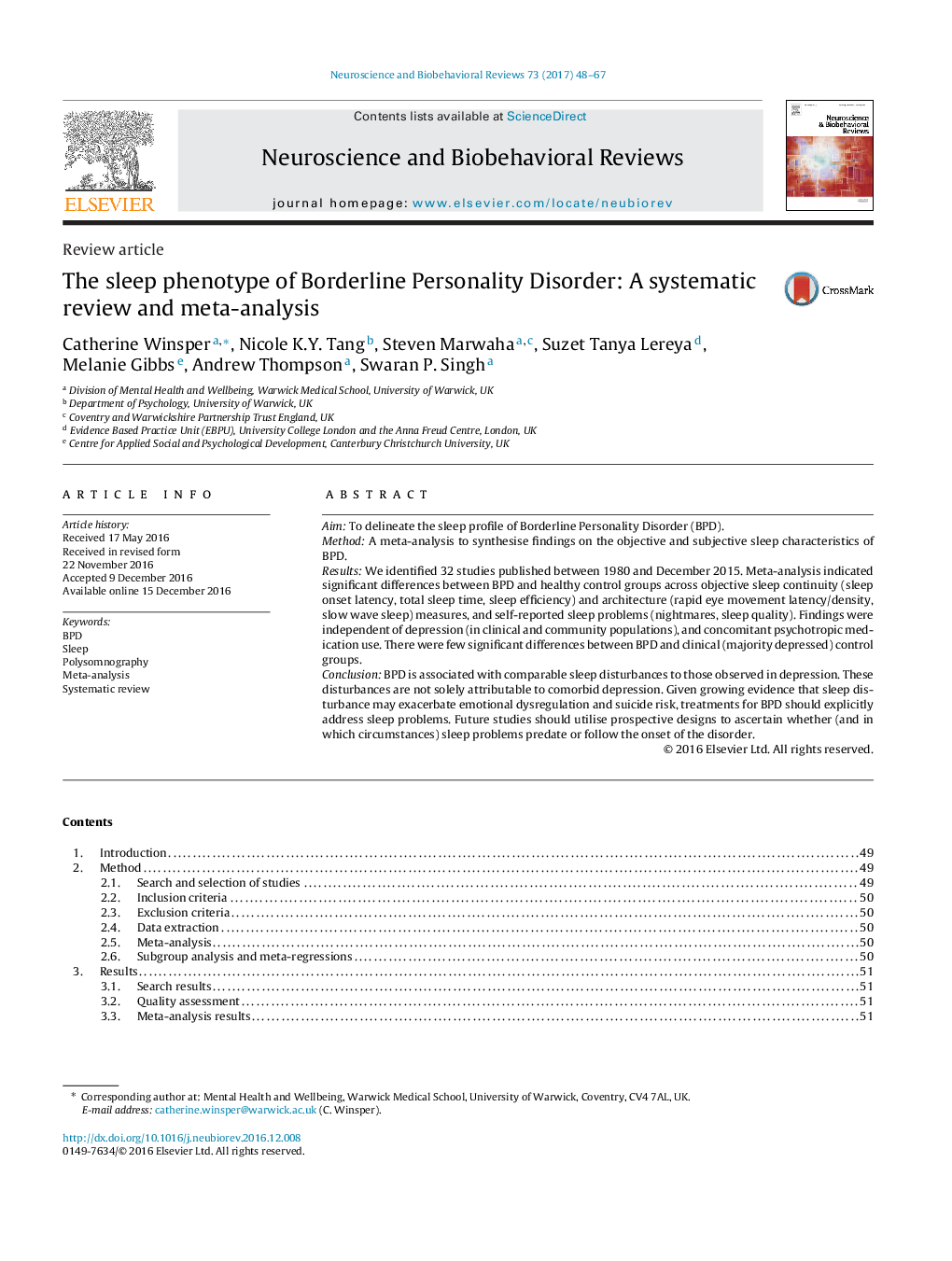| Article ID | Journal | Published Year | Pages | File Type |
|---|---|---|---|---|
| 5043530 | Neuroscience & Biobehavioral Reviews | 2017 | 20 Pages |
â¢We conducted a meta-analysis of sleep characteristics in Borderline Personality Disorder (BPD).â¢Individuals with BPD significantly differ from healthy controls on sleep measures.â¢Findings were independent of comorbid depression and current medication use.â¢Treatments for BPD should explicitly address sleep problems.â¢Prospective studies may ascertain whether sleep plays an aetiological role in BPD.
AimTo delineate the sleep profile of Borderline Personality Disorder (BPD).MethodA meta-analysis to synthesise findings on the objective and subjective sleep characteristics of BPD.ResultsWe identified 32 studies published between 1980 and December 2015. Meta-analysis indicated significant differences between BPD and healthy control groups across objective sleep continuity (sleep onset latency, total sleep time, sleep efficiency) and architecture (rapid eye movement latency/density, slow wave sleep) measures, and self-reported sleep problems (nightmares, sleep quality). Findings were independent of depression (in clinical and community populations), and concomitant psychotropic medication use. There were few significant differences between BPD and clinical (majority depressed) control groups.ConclusionBPD is associated with comparable sleep disturbances to those observed in depression. These disturbances are not solely attributable to comorbid depression. Given growing evidence that sleep disturbance may exacerbate emotional dysregulation and suicide risk, treatments for BPD should explicitly address sleep problems. Future studies should utilise prospective designs to ascertain whether (and in which circumstances) sleep problems predate or follow the onset of the disorder.
